Final Fantasy Tactics, and Repeating History
Nearly thirty years later, Final Fantasy Tactics feels more necessary than ever
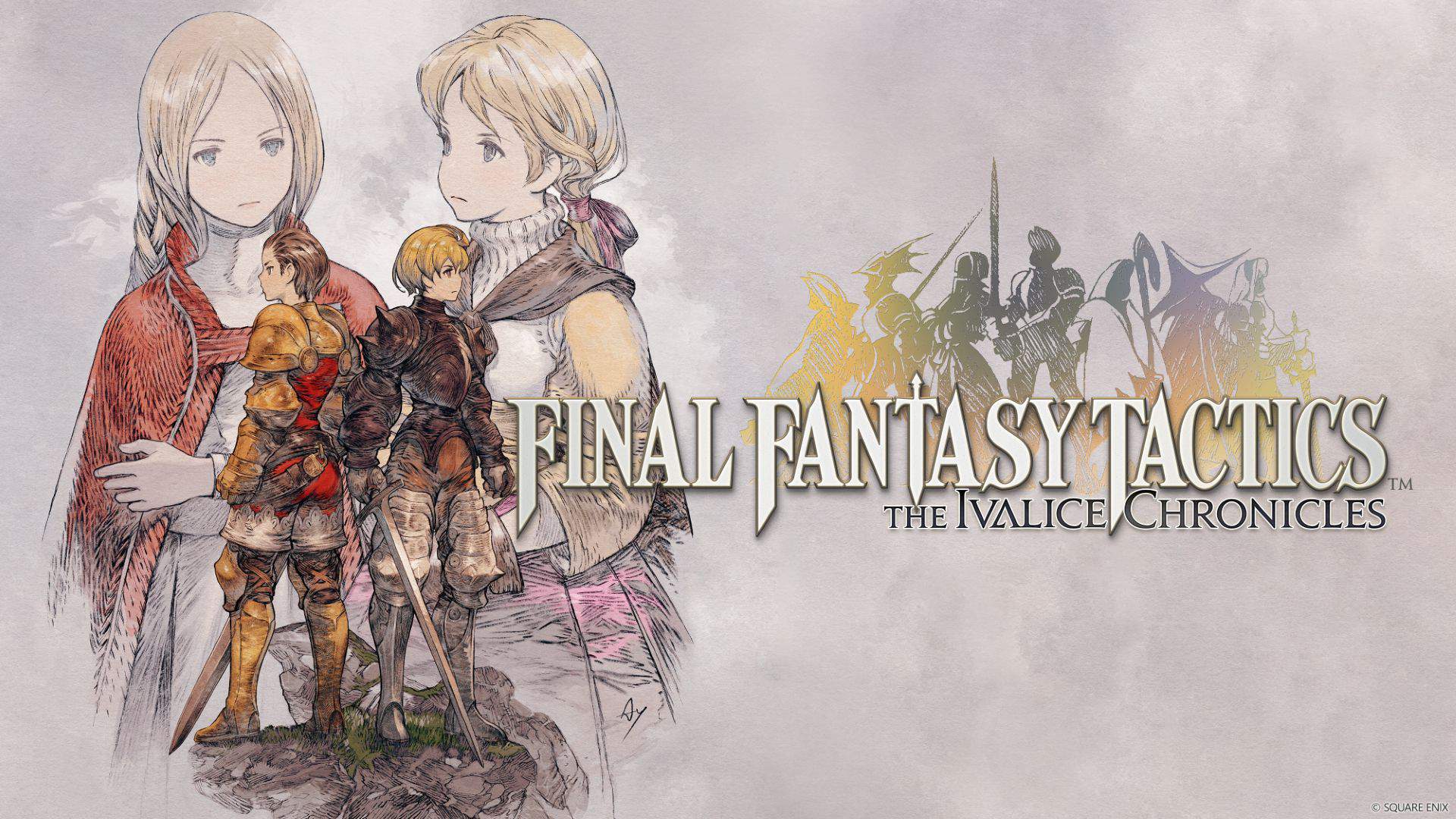
We have entered a new age of absurdity in national and global politics.
Woefully, the specifics don't matter. If, like me, you live in America, you are plagued daily by horrors, idiocrasies, and agendas that often feel as if they were ripped straight out of Les Misérables; but on the bright side, we have entertainment to distract us. Certainly, a remaster of a thirty-year-old PlayStation fantasy RPG will be enough of a break from the ongoing farcical events that dictate our daily lives. Video games, after all, are not inherently political, don't contain groundbreaking stories, and cannot subliminally or thematically impart lessons.
They are mere sources of entertainment—digital events to be consumed, taking up the ticking hours of our miserable lives as we trudge onward from day to day. Blessedly, games are free of historical references, societal mirroring, and philosophizing.
Is the sarcasm thick enough, or do we need to spill some blood?
The Will to Resist
Yasumi Matsuno's grasp of politics and historical perspective is evident within minutes of beginning his games. The original Final Fantasy Tactics, released in 1997, was initially inspired not only by historical events, but by his displeasure at the bureaucratic management of SquareSoft in the late 1990s. Never one to mince words, Matsuno's perspectives have always been plain on the page—or the screen. Vagrant Story, Final Fantasy XII, and Tactics Ogre are all about civil unrest, opportunistic sects, autocratic governments, and corrupt religions. Metaphor or no, Matsuno's ink is wet on history's page.
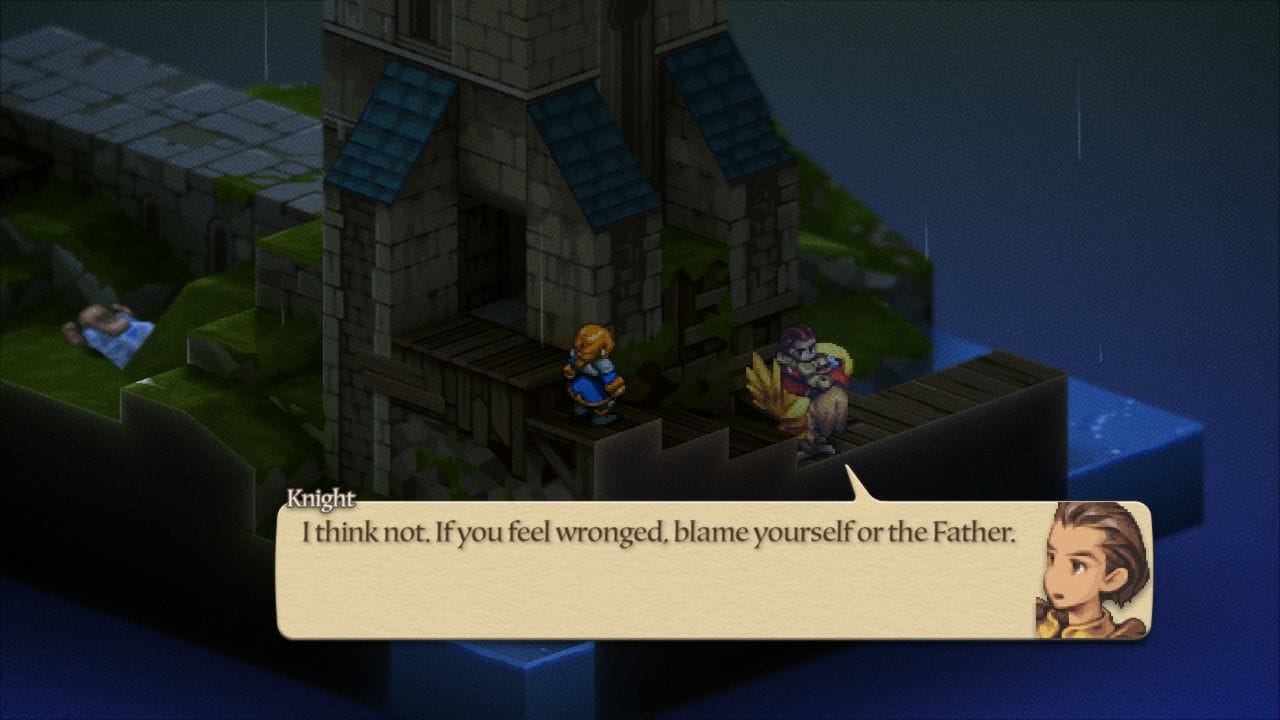
For the launch of Final Fantasy Tactics: The Ivalice Chronicles, Matsuno had something to say.
"Nearly 30 years ago, the collapse of Japan's bubble economy engulfed the nation's financial institutions in mountains of bad debt, triggering a wave of corporate bankruptcies, a sudden and extreme rise in unemployment rates, and stagnation of Japanese society as a whole," Matsuno said via social media. "It was an era when many were robbed of hope, when dreams were measured by their price tag."
"Against this historical backdrop, I crafted a story. It was the story of Ramza, a young man who fought tirelessly against the entrenched social class system. It was the story of Delta, who sought to take advantage of this confusion and despair to advance his own social position. It was the story of a peculiar destiny, in which friendship and betrayal intertwine.
"And now, in 2025—a time when inequality and division are still deeply rooted in society—I offer this story once again."
We are, again, a society at war with debt, fascism, and sophistry allowed by inept leaders who view the common people as bleating vassals of an unchangeable system.
The War of the Lions
Despite nearly three decades removed from our current political climate, the similarities between FF Tactics' war-embroiled story and our current societal state are a mite eerie. History repeats, and all that.
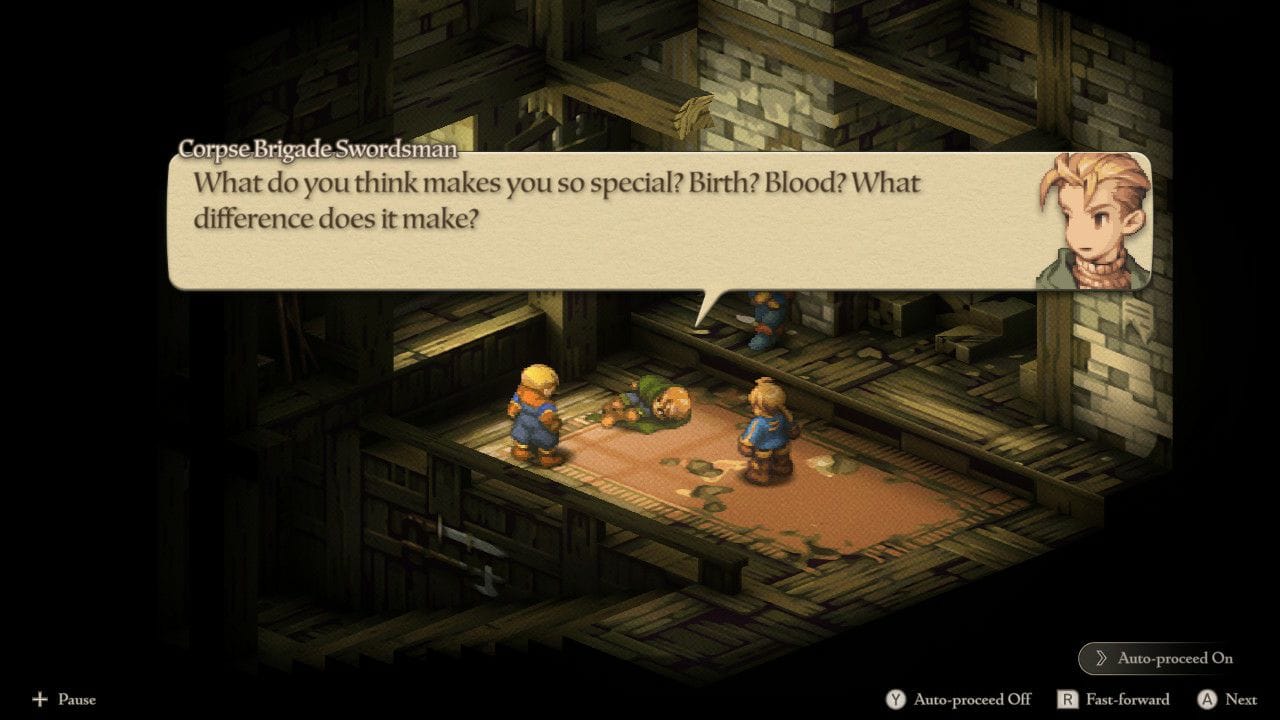
The game begins at the end of a five-decade war of attrition. During those fifty years, noble houses and poor families donated the lives of their young men to soldiering, all to protect the realm of Ivalice. The realm, now without an obvious successor, is split into two factions: The Black Lion and the White Lion. The Order of the Northern Sky–The White Lion, Prince Larg—and The Order of the Southern Sky—The Black Lion, Duke Goltana—vie for the monarchy, each an opportunist hoping to control Queen Louveria and King Ondoria's successor.
While these rival orders and their all-important war rage on within a kingdom that has not had time to recover from its previous wars, promises fall on the deaf ears of the commoners, the regular folk who have given everything to the powers that be and are asked to do so once again. What do the two powerful groups on either side of the metaphorical aisle have to offer the average farmer, blacksmith, or butcher? Nothing, except continued poverty, mounting debt, and hungry families who must either believe in the sham or pursue alternative routes of salvation.
So begins the War of the Lions, and from the mounting frustrations of the commonfolk emerge various rebellious groups. One such force, named the Corpse Brigade, seeks to resist and even punish the crown when possible, resorting to kidnapping, assassinations, and subterfuge in an attempt to right the course of history through terrorist acts.
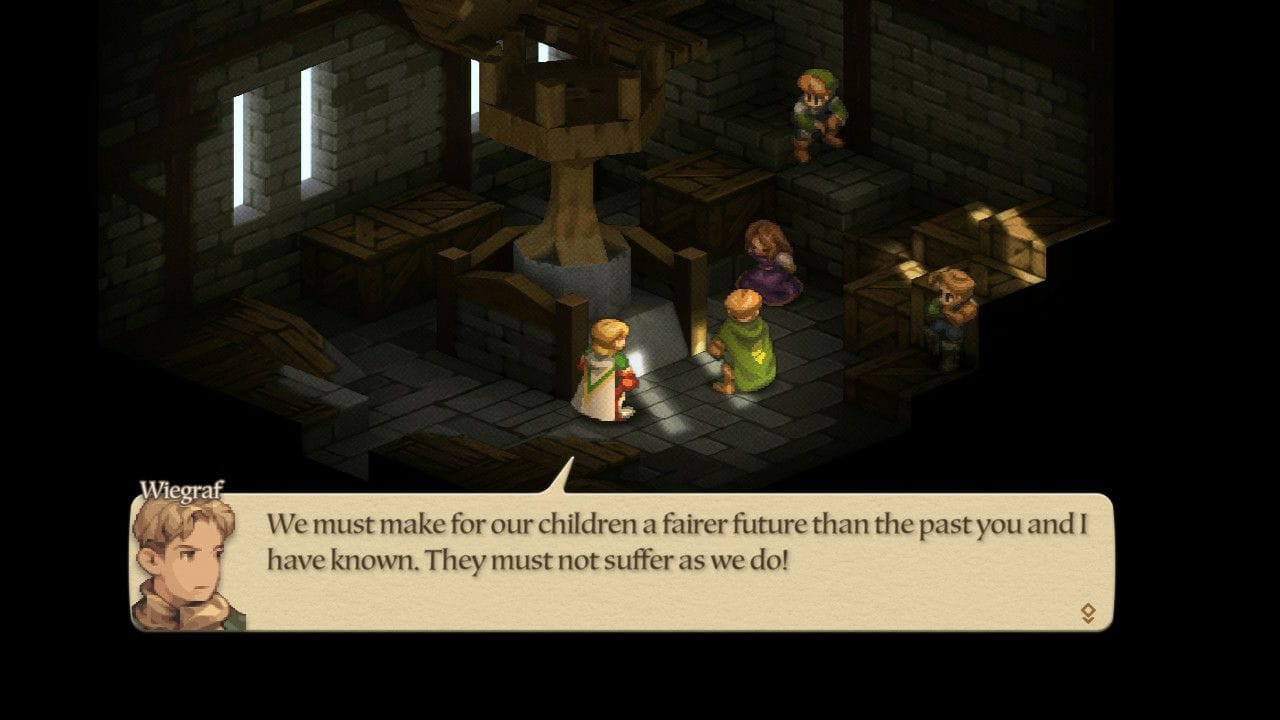
Deeper still is the truth of a nefarious plot, one whose strings are pulled by the Church of Glabados, a theocratic arm of Ivalice whose legitimacy is feigned by the claim of Saint Ajora's divinity. The church also has its own military sect: the fanatic Knights Templar, a group of holy swordsmen capable of sowing disorder not only through their supernatural military might, but also by directly attacking the hearts and faith of the people, creating disorder in the name of defeating Ivalice's secular powers.
While the White Lion and Black Lion contest for the meaninglessness of a political seat, those behind the church attempt to restore an infamous legend: The Zodiac Braves. Hailed as heavenly heroes once sent to rectify a shattered realm, the truth behind the Zodiac Braves and their chilling pieces of auracite is something far more evil—the monsters Lucavi, errant dark passengers of a godhood that may or may not exist, whose true aim is to resurrect their master, Ultima.
Historical Recurrence
Beyond the more fantastical details of Final Fantasy Tactics' setting, students of history might notice aspects of the game's plot that feel uncanny. A binary system of woeful leaders pretending to put the people's best interests at heart while they plumb society's coffers for their unimportant war; Religious sects carving out their places in susceptible hearts to deliver fictitious existential opiates; Groups of extremists preying upon the fear of hardworking, everyday commoners to steamroll their terrorist agendas.
The game's dramatic historical fictions feel relevant both then and now because we continue to live within the boundaries of deeply corrupt governments and religious groups who view fear, chaos, and an incapable populace as opportunities. It is easy to cheer on Ramza as he weathers the storm of bureaucrats, mercenaries, and traitors who treasure the advantages the status quo might offer them, while going against the tide in the name of honor and moral decency.
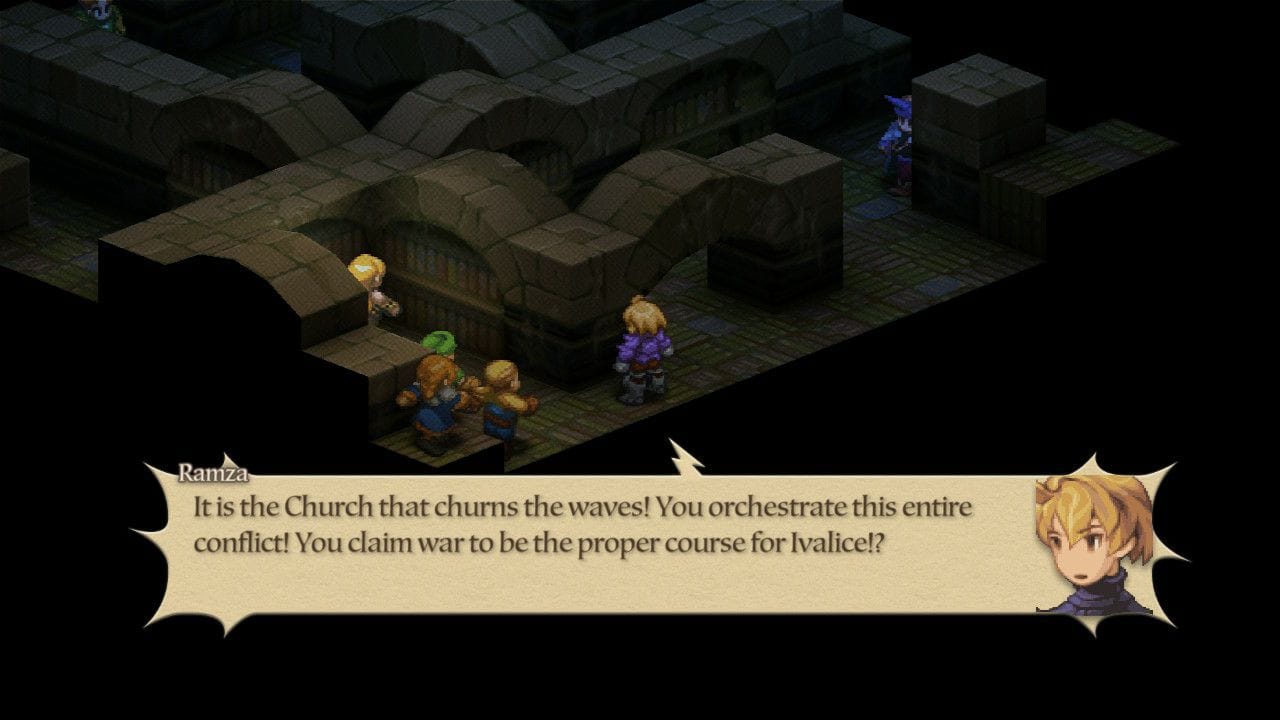
Time and again, Ramza is called out by name, accused of holding tight to the Beoulve honor once displayed by his father and the more respectable members of his noble house. Ramza learns that it is the nobility that is responsible for enabling and perpetuating the terrors that plague their society, and that the only way to protect the common folk is to dismantle the very systems that uphold the standards of corruption and inequity.
Final Fantasy Tactics sets the stage by revealing hidden history, showcasing a grand secret buried by those who would control the flow of events. Ivalician history discounts Ramza as a bit-player, a heretic of no significance whose interference disrupted the War of the Lions. This account, presented to the player, aims to set the record straight from the point of view of Arazlam Durai, providing a more accurate account of the Zodiac Brave Story. It reveals the murderous and manipulative actions of Delita Heiral, as well as the selfless heroics of Ramza Beoulve.
Life does not award us opportunities to experience the "reality" of history. As an American, I was raised to believe in the heroic accounts of white slave owners who committed genocides and colonized the North American landscape away from its Native population. Children are fed propaganda that enhances the view of the state and discredits its enemies with fictitious accounts that sanitize war, slavery, and the theft of land. While we are only presented a small window of Ivalician history in Final Fantasy Tactics, the game's narrative (and the expanded Chronicle in the Ivalice Chronicles edition) focuses on the crimes of the monarchy and ludicrous fictions of the church.
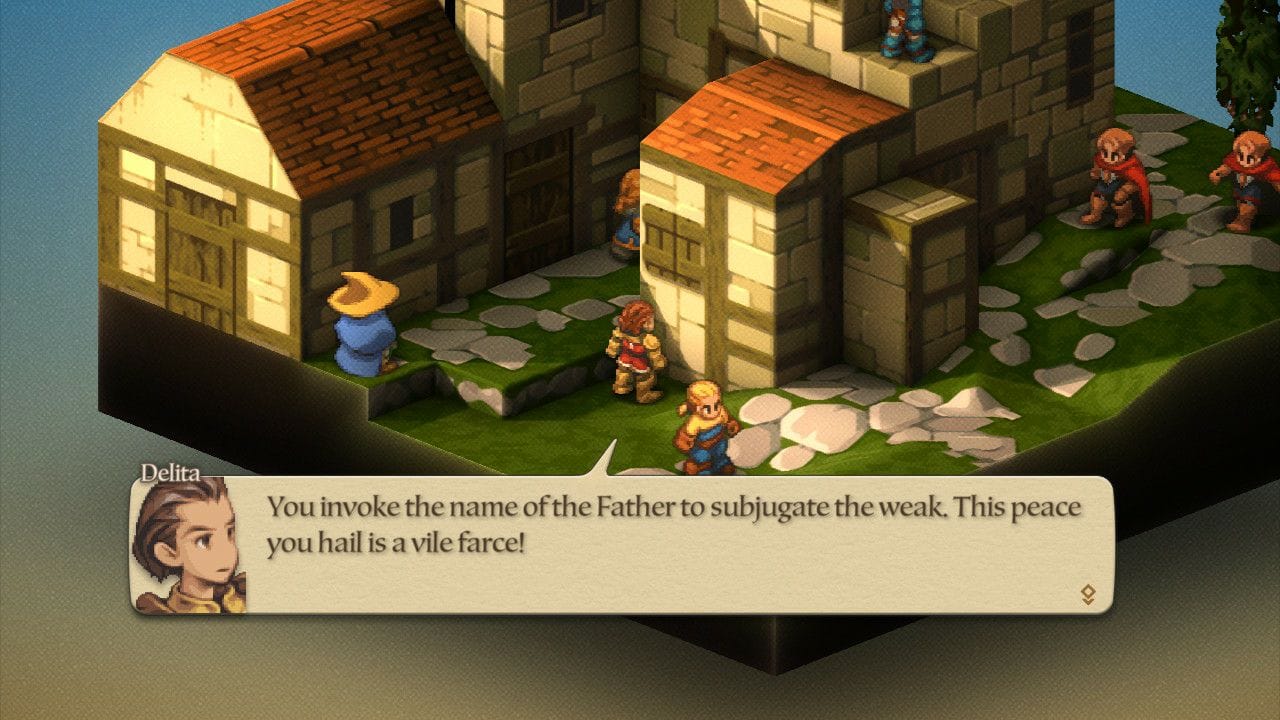
What is maddening is that the supposed modern-day account of Ramza has been occluded by the church until now. It shows that just like Ramza's uncovering of the church's misdeeds through the Scriptures of Germonique and the truth of St. Ajora during his lifetime, the church's power has not waned in Ivalice: they continue to mitigate the actions of heroic men and women that paint them in a poor light. The Durai Papers—uncovered by Orran Durai's descendant, Arazlam Durai—attempt to correct these lies centuries later.
Men and Chattel
Regardless of what version of Final Fantasy Tactics you play, the core themes of political intrigue and religious corruption remain. The Ivalice Chronicles has further refined Alexander O. Smith's luscious and Shakespearean script from The War of the Lions, and Yasumi Matsuno's new dialogue adds layers of complexity, drawing out characters who had little to no interaction before.
Final Fantasy Tactics' earliest and most refined case of bourgeoisie depravity is Argath. Introduced during one of the game's first battles, and under duress, Argath is a low-ranking member of the nobility, his purview corrupted by the fall of his noble house. Argath tells Ramza a fanciful tale about House Thadalfus, recounting how his grandfather's capture led to betrayal and a stain on his family's name.
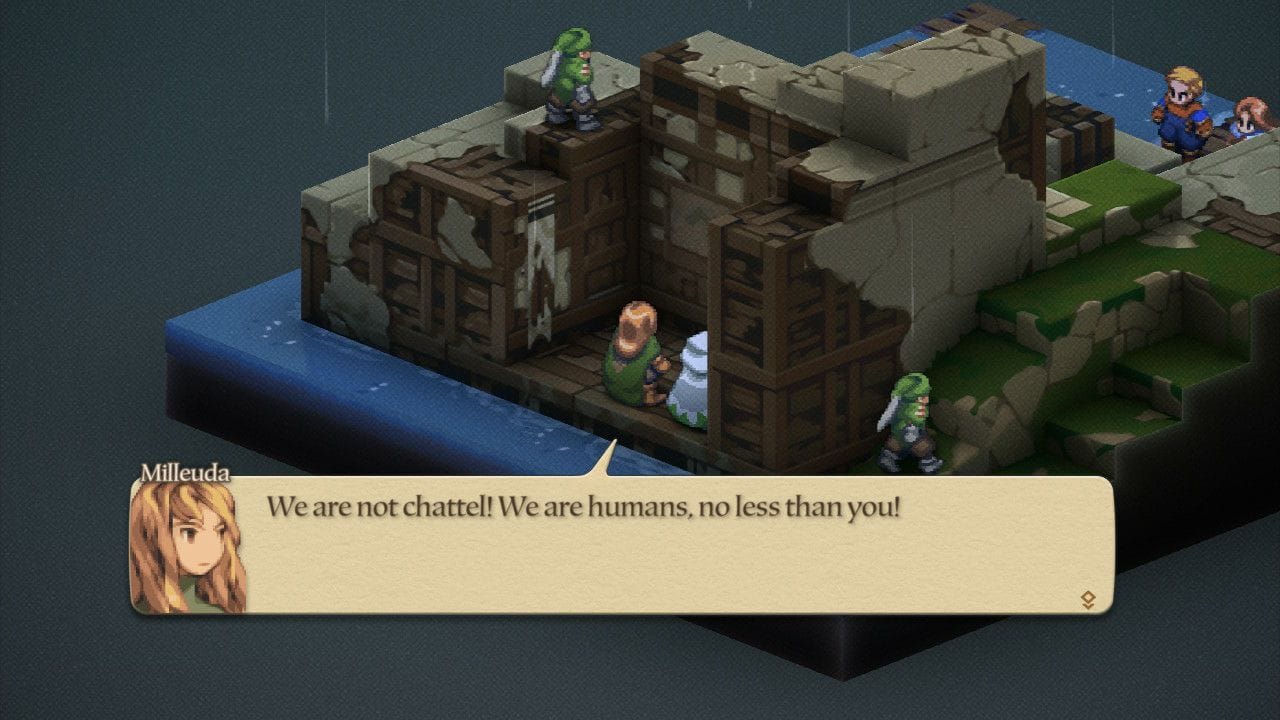
Argath is a character obsessed with reputation and status. As Ramza and Delita pursue the Corpse Brigade, Argath's true colors are immediately marked in crimson. As a sullied member of the aristocracy, Argath believes it is the divine right of his name and blood to rule over those lesser than him. He views the common folk as "chattel" and pins his bigotry on god and the state.
"How can you nobles live as you do and yet hold your heads so high? We are not chattel! We are humans, no less than you! What flaw do you hold there to be in us? That we were born between a different set of walls? Do you know what it means to hunger? To sup for months on naught but broth of bean? While you wage your wars that you might grow fat, we are made to starve! You call us thieves, but it is you who steal from us the right to live!" - Milleuda Folles
In the slums of Dorter, Argath, Ramza, and Delita question a lone swordsman of the Corpse Brigade. "You nobles are...are all the same," he says. "You think every man...born outside a castle's walls...less than human. We fought for this kingdom at peril of our very lives. Yet...yet the moment the war was ended...you turned us out into the streets. What do you think makes you so special? Birth? Blood? What difference does it make?"
Ramza begins to question the world around him. Born into the nobility and of a high-ranking house, Ramza Beoulve believes only in the moral authority of his father, who upholds the qualities of servitude and honor. Argath is a representation of the truth, a pawn of the status quo whose faith in the destructive laws of class defines him.
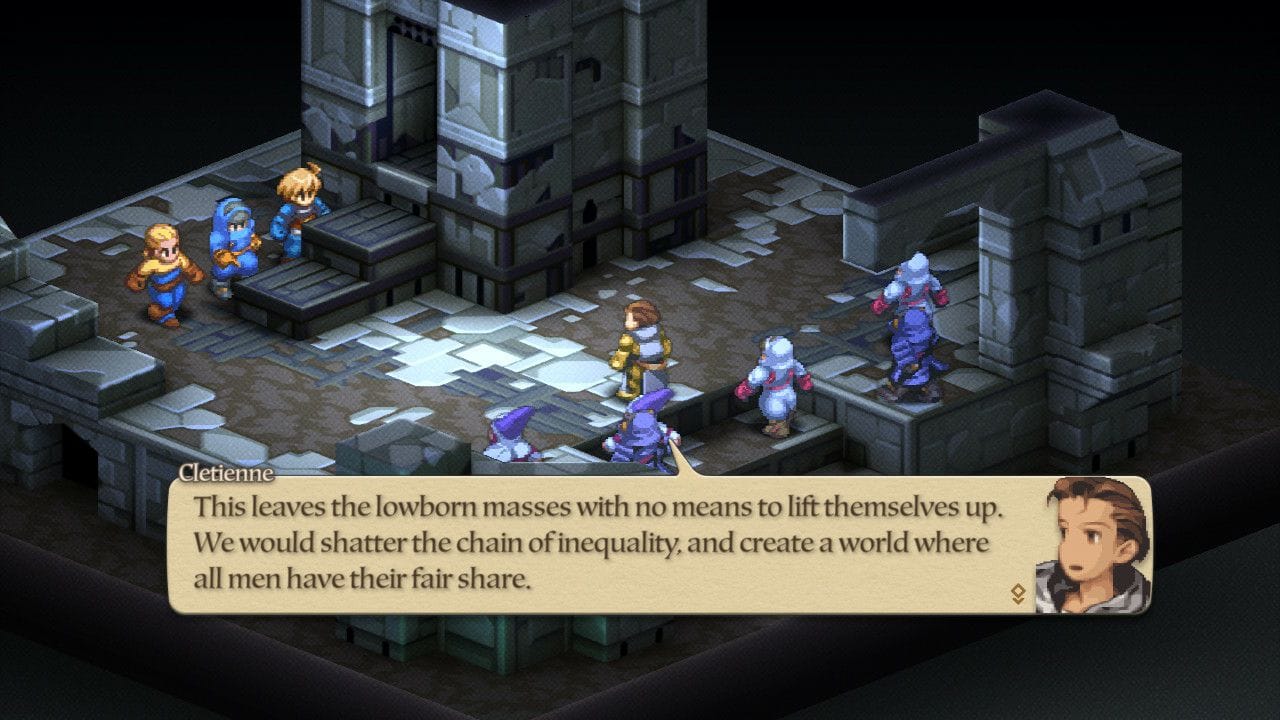
We live in a world of inequity, our modern lives reinforced by the importance of monetary value in a corrupted system of capital, racism, and religious difference. Matsuno aimed to bring these ideas to the forefront in a fantasy setting, to showcase that even when your story is spiced with magic and dragons, the importance of its narrative can remain unchanged.
"The truth is, the themes I’ve included in my games have usually reflected the people and the situations I was working in at that time. For example, in Final Fantasy Tactics… the theme of the class-based society, of nobles and commoners, that came about because when I joined Square, as you can imagine, there were individuals there who were like royalty: their talent, and the social capital they had amassed… it made me doubt whether someone without those gifts could ever succeed there, no matter how hard they tried. And those ideas found their way into the game."
Yasumi Matsuno, 1999 Developer Interviews
Matsuno's disdain for meritocracy during his tenure at SquareSoft inspired him to look deeper into issues of societal disparity. Inequity does nothing but cause strife, formulating boundaries that enable those in power to direct history by taking the reins of class and maneuvering those deemed "lesser" any which way they deem necessary. Final Fantasy Tactics—and the other games within the Ivalice canon—aim to teach the player while entertaining them.
If It Can Be Endeavored, It Can Be Done
In the fog of political intrigue, betrayals, conspiracy, and bloodshed, Ramza forges a more difficult path, turning his back on the aristocracy and the church, entrenching himself as a man of the people. The heart of Final Fantasy Tactics is a tragedy, rearing its head as the death of the innocent, the betrayal of family, and the manipulation of history.
What is most heartbreaking is the intimate, and inevitably irreparable, relationship between Ramza and Delita. The son of vassals who owed fealty to House Beoulve, Delita and his sister Tietra became like family to Ramza and Alma, the children blind to the hierarchical ways of the world. The game's prehistory sets the stage by telling the player that although Delita is named the hero of the War of the Lions, in truth, he was a crass manipulator who schemed to cut out the rot at the heart of Ivalice, his ambition to remake the world inevitably leading him to be crowned king.
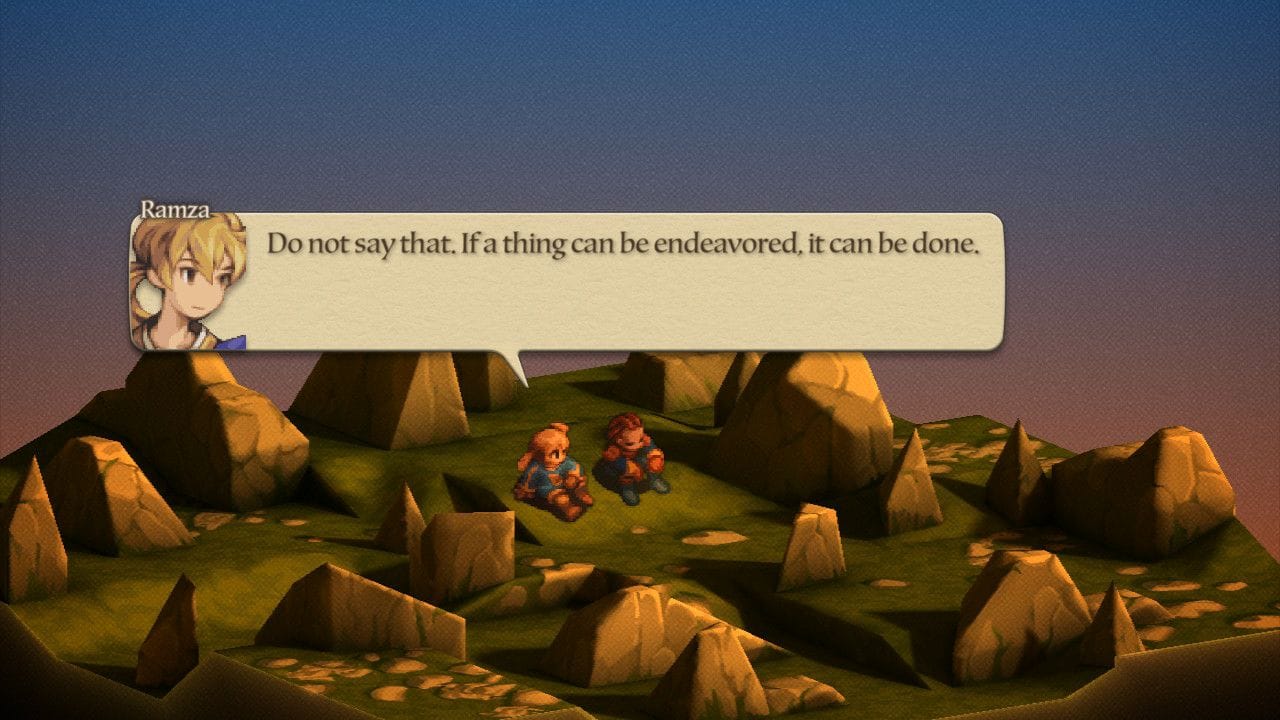
It was the early lessons of an unfair life that led Delita to become the scourge of the monarchy. Before Tietra became a victim of the apathetic nobility, Delita long despised the aristocracy for how they treated commoners, while also swearing vengeance against a church that subjugated the weak by hiding behind god and salvation. Delita's true tragedy is that while he hardened himself against society's most powerful figures, he also hardened his heart against the people who meant the most to him.
Final Fantasy Tactics frames heroism as a twofold path. As young men, Ramza and Delita are swayed by the truth spoken by Wiegraf, the leader of the Corpse Brigade. "We must make for our children a fairer future than the past you and I have known," Wiegraf says. "They must not suffer as we do."
It is maddening to live in a society that is so corrupt that the very act of bearing children feels like a cardinal sin, to know that the government is so corrupt that the individual cannot count on the blessings of a supportive state, but must pay taxes into a foundational evil, eternally obsessed with warfare and the preservation of the powerful.
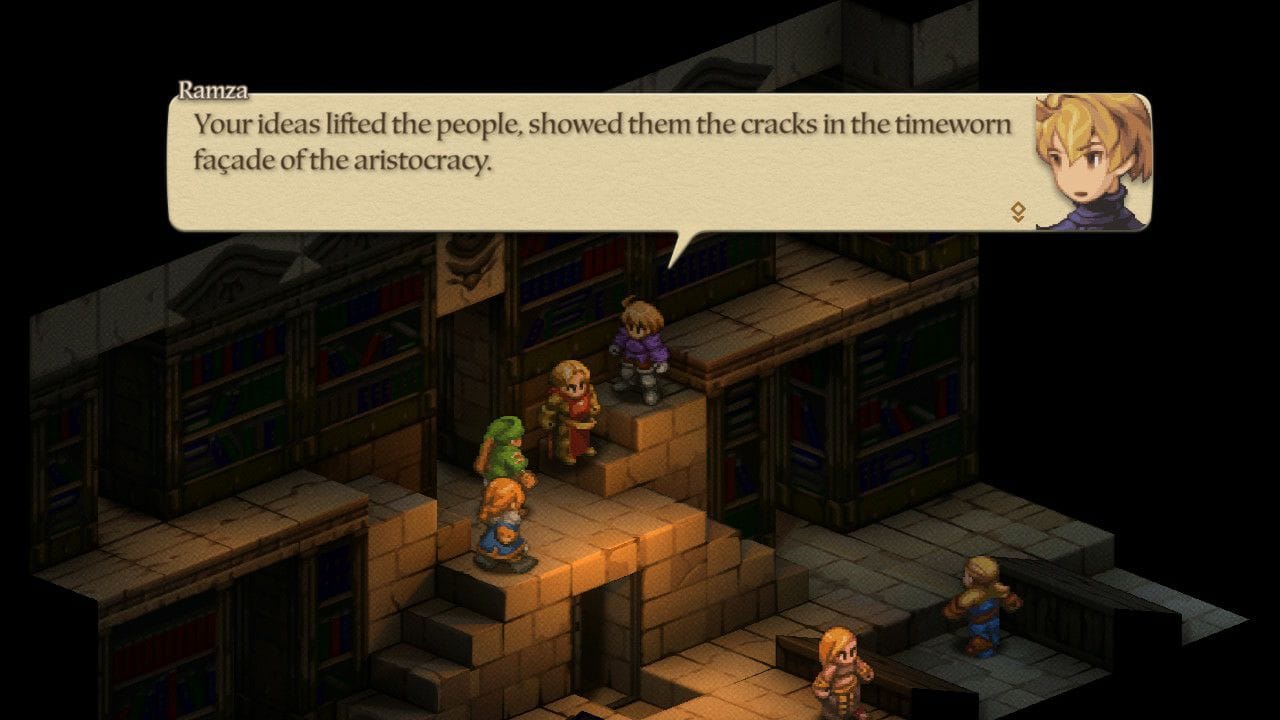
The Scorned and the Subjugated
Imperialist systems retain their power through the belief that their citizenry is weak and must be corralled.
In the final battle against Gaffgarion, Agrias says: "The fear of a woman who defies your expectations, or indeed anyone who fits not your view of the world. To protect your fragile self-worth, you scorn those who share not your values—those such as myself and Ramza."
Societal boundaries are crafted from the illusion of beliefs. Suppositions that women are inferior, that god places the nobility, and that common people are lesser because of their birth. Whether a real war or fictional, bodies and munitions are taxed from everyday people as rights of the state; the meager are eternally punished simply for existing within a war-mongering system.
"My lord brother and Duke Larg seek to ignite war to further their own ends! Yet who is it that would be made to suffer? It is the soldiers, who fight and die with their names unknown to their lords! It is the veterans, who are cast aside when their swords are no longer needed! It is the commonfolk, who are bled dry by taxes and levies! After fifty long years of conflict, the kingdom was finally beginning to know peace again... But now a privileged few would shatter that peace for personal gain! If such a thing is not foul, ser, then pray tell what is!" - Ramza Beoulve
Ramza cannot abide a world in which inequity is the norm. Whether it be the church or the state, it is intolerable to have the powerful few dictating the lives of the majority. These days, we have become used to cries of fascism and intolerance, of wars and genocides, of the privileged few. Food has become intolerably expensive. An entire generation cannot afford the homes purchased by their parents and grandparents. And these same common, hard-working folk are inured by the daily repetition of what they must do to make rent and put food on the table.
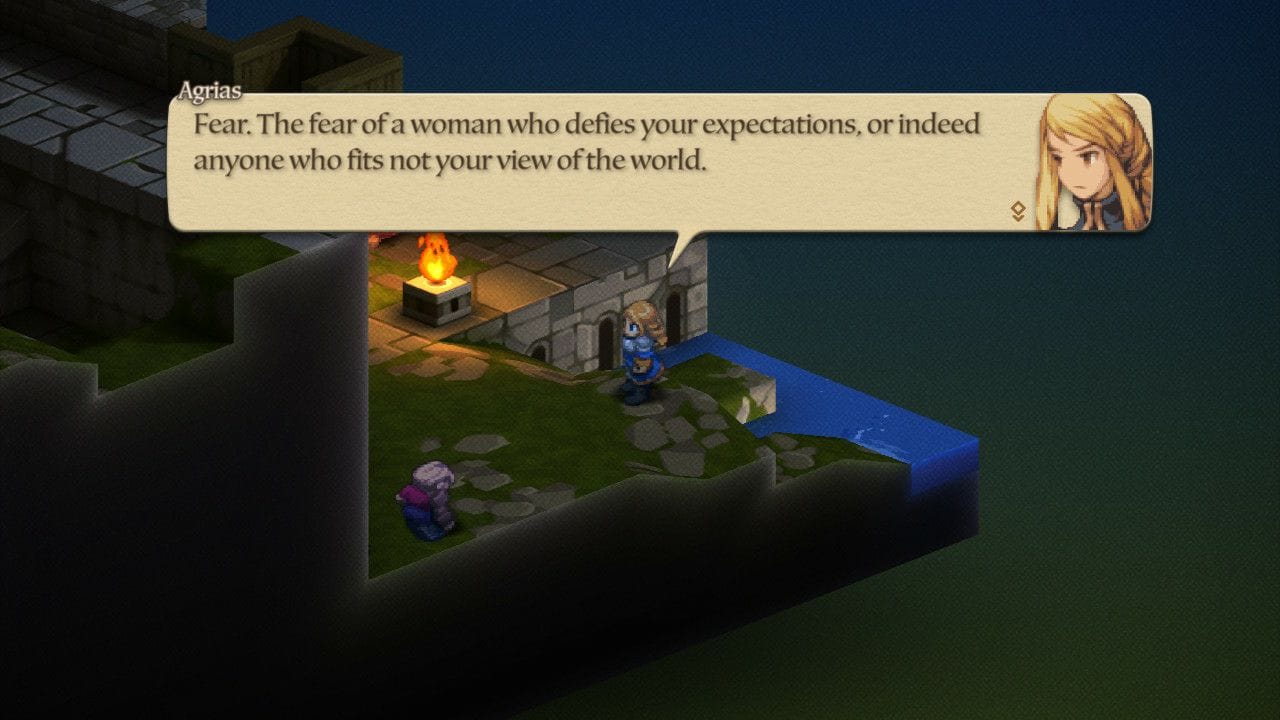
Yasumi Matsuno's script for Final Fantasy Tactics is built upon the intolerance of intolerance. In 1945, Karl Popper wrote that a society must deny tolerance to the intolerant, that rational argument is not always the best defense, and violence may sometimes be the answer to those who would undermine society through their intolerance. While even Ramza may admit that violence should not be the answer, the state will never hesitate to utilize force to keep its citizenry in line.
As new plots unfold and Ramza learns that something demonic is behind the church's machinations, he does not waver. Branded a heretic and an enemy of the state, Ramza continues to push forward and uncover plots that will eventually celebrate him as the true hero of the War of the Lions and a man of the people. Alongside his sister Alma, Ramza discovers that the patron saint of the Church of Glabados, St. Ajora, was not a priest but a spy for another nation whose body became the host for the Lucavi, Ultima. Again, the church's dangerous lies are laid bare, altering the course of history.
The True Hero
As is made clear in the game's prologue, Final Fantasy Tactics is about the pursuit of truth. In the face of power, of ostracization, of total loss, Ramza and his comrades believe that the truth is more valuable than anything.
It is not easy to walk the true path. Those of us who believe ourselves to be decent are riddled with doubt because our consciousness consistently checks us for our morality, asking us if our ambitions stay the course. Final Fantasy Tactics regularly toes the line between purpose and meaning, facts and fanaticism. This is more than a political backdrop, but a mirror for what we face every day. For those of us who count ourselves among the commoners, who do what we can to live while resisting the cruelties of the aristocracy, the evildoers, the manipulators, it can be exhausting.
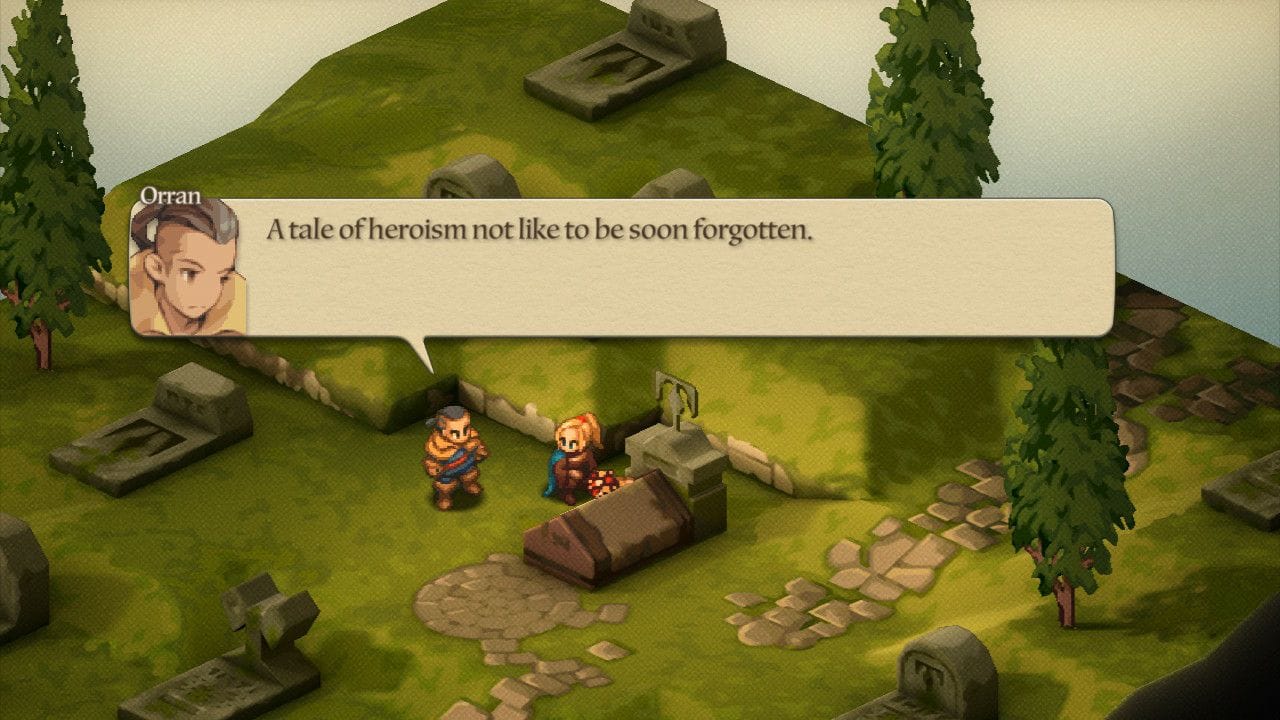
"It was an era when many were robbed of hope, when dreams were measured by their price tag." Matsuno's words, delivered nearly thirty years later for the remaster of such a special game, may feel initially hopeless. What purpose is there in a society that does not grow or change, one whose scheming Haves are significantly more powerful than the Have-Nots? The timelessness of Final Fantasy Tactics is not only in the artistic beauty of its music, its gameplay, and its presentation. There is meaning in the reminder to fight, to remain wary of those in power, to craft art that remains necessary decade after decade.
As with Metal Gear Solid, 1000xResist, Disco Elysium, and other video games that walk the line between education and entertainment, there is value in spending your time ruminating over the political facades of the world—and how our actions might better them.
